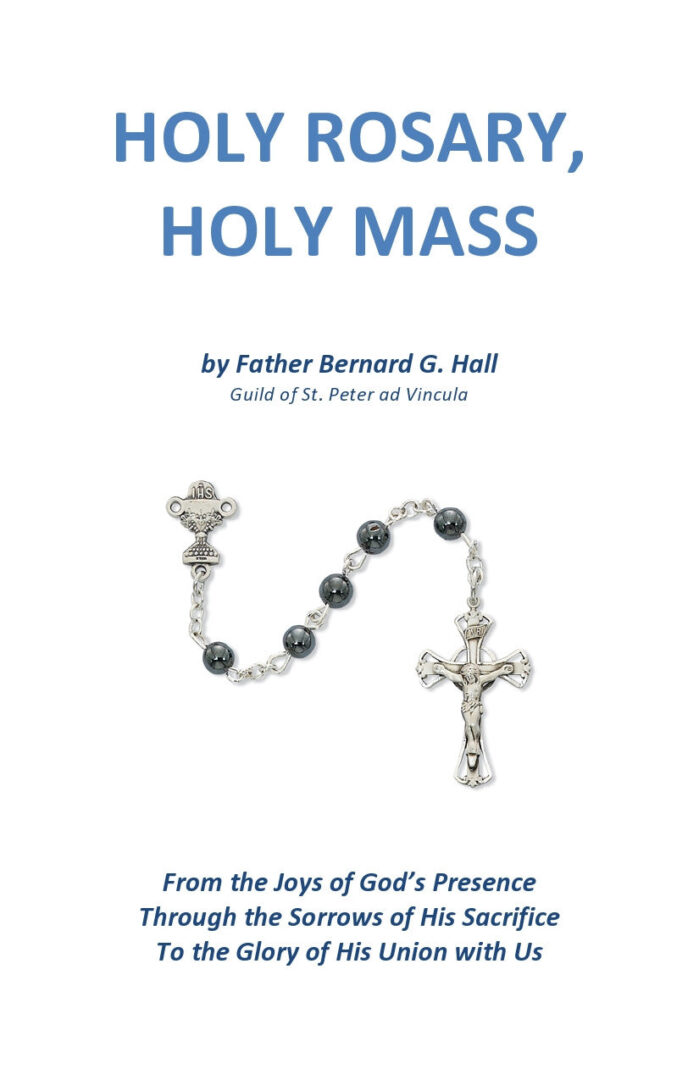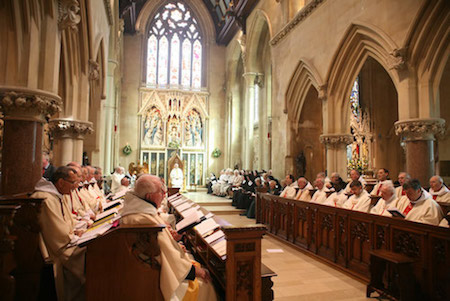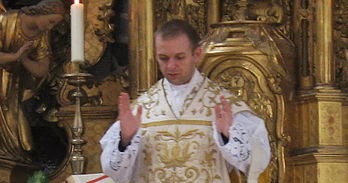Books for Eastertide


$11.95 – $25.95
Select options This product has multiple variants. The options may be chosen on the product page
Et Reliqua
Sermons and Reflections from the Deanery
Support our apostolate



Select options This product has multiple variants. The options may be chosen on the product page


“Let all things be done decently and in order,” says St. Paul (I Cor. 14 : 40). The use of ceremonial is toward this end, and is inspired by the spirit of reverence.
Our online Breviary is published for the benefit of clergy and laity who wish to pray the Divine Office individually and in private. By its very nature of being online, it is unsuitable for use in church services, or in quires and places where they sing the Office.
Nevertheless, there are many advantages of knowing the correct choir rubrics. The physical movements and positions of the body reflect the nature of the prayers we read, and it may even be helpful occasionally to emulate these ceremonial movements even in private recitation.
As soul and body are connected, it is natural that we will find our souls uplifted by following some of the rubrics on a regular or at least occasional basis. We should always strive, for example, to bow our heads for the Gloria Patri and at other places indicated; we should make the sign of the cross at the appropriate times, and make a distinction in our voices between the silent prayers and those that are said aloud. By observing these simple rubrics, we enter more closely into the spirit of the liturgy and are more likely to derive the benefits that come from involving our bodies in the work of our souls.
Merely by being aware of when we should be standing, sitting or kneeling in choir can be helpful in this regard, and prevent our reading of the liturgical services from being unduly informal. This simple knowledge can transform our mundane lip-service to a more meaningful and solemn attendance to our prayer, even transporting us in spirit to the great gothic quires of our ancient abbeys and cathedrals.
While the choir rubrics provided here are not meant to be authoritative or definitive in nature, they will at least give the reader the occasion to absorb some of the spirit of the liturgy that words alone cannot convey.
The Versicle Dominus vobiscum (The Lord be with you) may be said only by Bishops, Priests and Deacons.
Subscribers who have not been ordained at least to the diaconate must instead say Domine, exaudi orationem meam, with the Response Et clamor meus ad te veniat (O Lord, hear my prayer. And let my cry come unto thee).
If this latter Versicle and Response has already been said immediately prior to the Dominus vobiscum (eg. during the Preces), it is not said a second time.
